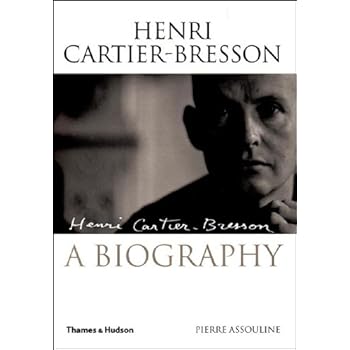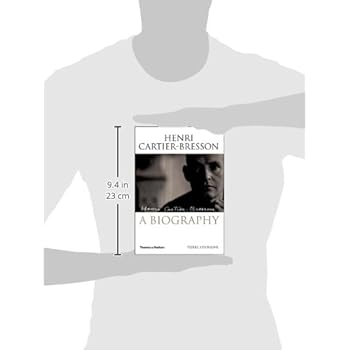Henri Cartier-Bresson: The Biography
Category: Books,Arts & Photography,History & Criticism
Henri Cartier-Bresson: The Biography Details
From Publishers Weekly Often called the father of photojournalism, Cartier-Bresson tried to give up photography as a profession four times in his life, returning to his first love, painting, repeatedly—but he always kept his Leica in his pocket. The Frenchman captured the emotion and magnitude of some of the 20th century's most significant news stories by simply turning his camera away from the main event and into the crowd. This, too, is Assouline's approach to biography. Drawing on five years of conversations with his subject, Assouline presents not a chronological or critical accounting of events but a portrait, illustrated through descriptions of Cartier-Bresson's photographs (almost none of which are reproduced in the book) and summarized with generalizations of the artist's approach toward art and life: "His taste was classical: he needed that kind of order to counter the vulgarity of the world outside" or "In affairs of the heart, he was a seductive romantic." Energetic and informative passages describe Cartier-Bresson's years as a soldier and his travels to the Ivory Coast, China and India (where he photographed Gandhi just hours before his death). Despite its gaps—such as mere passing references to Cartier-Bresson's two marriages—this smooth hagiography will inspire fans and followers to rediscover its elusive subject's remarkable oeuvre. (Nov. 28) Copyright © Reed Business Information, a division of Reed Elsevier Inc. All rights reserved. Read more About the Author Pierre Assouline, a writer and journalist, has written biographies of Georges Simenon, Hergé, and others. He lives in Paris. Read more

Reviews
I'm surprised to be the first reviewer of a biography of one of the worlds most revered photographers.There are two reasons why I have given this book only three stars.The first is the lack of photographs. Oh, there are plenty of photos OF Cartier-Bresson, but none BY Cartier-Bresson.Although Assouline describes some of HCB's work, there are no examples.Do Assouline and the publisher actually believe that everyone who reads this book is so familiar with HCB that they've memorized his work? More likely they have chosen not to pay the royalties.The second reason is my disappointment with the almost complete lack of insight into the photographer's thoughts. There's plenty of information about his political beliefs (more than needed in my opinion) but nowhere does one find an explanation of what motivated him to press the shutter release.These shortcomings aside, this is an immensely readable book. Not only does it go into the details of HCB's life, but it puts them into historical perspective. Cartier-Bresson was present at, and often involved in, some of the most important events of the 20th century.I would have prefered a bit more detail regarding his time spent as a German prisoner of war during WWII. His meeting with Gandhi shortly before the Mahatma's death was also glossed over.I got the feeling that Assouline was being extraordinarly kind. There is very little mention of HCB's famous temper or acerbic tongue. That would be fine if this were simply a photography book, but it's supposed to be a biography.Being a long-time fan of Cartier-Bresson's work I did get a lot of enjoyment out of the book. I'm also familiar enough with his work that the lack of photographs wasn't a hardship. However, unless you intimately know HCB's work, you may want to familiarize yourself with it BEFORE reading the bio.



